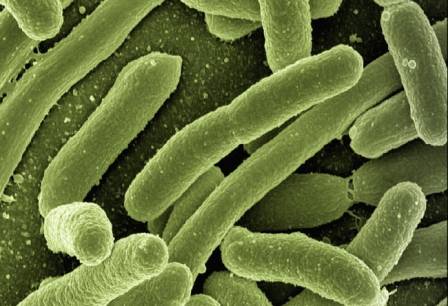Admittedly, it is quite strange when tiny yellow objects that look like corn kernels are found in your stool. Not surprisingly, you look closely, but find that they are not corn kernels, but strange yellow particles! What are they? How did they get there? And, more importantly, what do they mean for your health?
Dairy Products and Protein Casein
Dairy products are rich in essential nutrients such as calcium, vitamin D, and phosphorus, all of which contribute to maintaining strong bones and overall health. One of the primary components in dairy products is a protein called casein, which makes up about 80% of the protein content in cow’s milk. Casein is a vital source of amino acids, offering a slow-release digestion process that helps sustain the body’s energy levels and supports the growth and repair of muscles. Consuming dairy products regularly can provide an array of health benefits and contribute to a well-balanced diet.
Irritable Bowel Syndrome (IBS)
Irritable Bowel Syndrome (IBS) is a common gastrointestinal disorder that affects approximately 20% of adults worldwide. It is characterized by a group of symptoms that typically include cramping, abdominal pain, gas, constipation, and diarrhea. These symptoms can often be triggered by specific foods or drinks and usually subside after a bowel movement. IBS has been linked to undigested food particles, such as yellowish chickpeas or corn-sized particles, appearing in stool due to impaired protein digestion. Treatment for IBS usually involves dietary modifications and stress management.
Undigested Food in Stool
It’s common to find corn kernels undigested in one’s stool, due to the outer shell of the corn containing cellulose, a compound the body lacks specific enzymes to break down. However, the body is still able to digest the nutrients inside the corn kernel. Generally, seeing undigested food in stool is not a cause for concern, but if accompanied by symptoms such as bowel habit changes or abdominal pain, it’s important to consult a doctor. Proper chewing and steaming of vegetables can aid digestion and reduce undigested food particles in stool.
Fiber and Cellulose
Fiber and cellulose are essential components of a healthy diet, providing benefits to the digestive system. Fiber, found in whole grains, fruits, and vegetables, adds bulk to stool, helping to stimulate the intestines and support digestion. Cellulose, on the other hand, is an indigestible compound found in the outer shell of corn and other plant foods. While the body does not break cellulose down, it still plays a role in maintaining digestive health by providing roughage and enabling smoother bowel movements.
Corn and Cellulose
Corn is a popular food item that is rich in essential nutrients such as vitamins, minerals, and fiber. One of its main components is cellulose, a complex carbohydrate that provides structure to plant cell walls. Although cellulose is generally not digestible by the human body, it plays a crucial role in promoting digestive health by aiding in the passage of food through the gastrointestinal tract. As a result, when we consume corn, the undigested cellulose may appear as yellow, corn-like objects in stool, which is a natural and harmless occurrence.
Medications and Intestinal Parasites
Medications and intestinal parasites can both contribute to the presence of yellow corn-like objects in stool. In some cases, medications such as venlafaxine capsules may not dissolve properly in the gut, leading to the undissolved shell appearing as yellow balls in the stool. Additionally, certain intestinal parasites like helminths may cause alterations in the appearance and consistency of stool, potentially resulting in the presence of small yellow balls. Proper diagnosis and treatment of these conditions can help alleviate these unusual stool characteristics.
Advantages of Eating Fiber
Eating fiber has numerous health advantages, which are backed by scientific evidence. Firstly, fiber adds bulk to the stool, promoting regular bowel movements and preventing constipation. Secondly, fiber consumption can help maintain healthy cholesterol levels, reducing the risk of heart disease. Lastly, consuming fiber-rich foods aids in weight management, as it promotes satiety and reduces overall calorie intake. Incorporating fiber into one’s diet can enhance overall health and well-being.
Proper Digestion and Nutrient Absorption
Proper digestion and nutrient absorption play a crucial role in maintaining overall health. To achieve this, it is essential to consume a balanced diet rich in fiber, vitamins, and minerals. Chewing food thoroughly and eating slowly allows digestive enzymes to work more efficiently, breaking down food into smaller components for better absorption. In addition, managing stress levels can positively impact digestion and prevent conditions that may result in undigested food particles, such as yellow corn-like objects in the stool.
Exceptions to Undigested Food in Stool
While undigested food in stool is generally not a cause for concern, there are some exceptions that may require medical attention. If the presence of undigested food is accompanied by symptoms such as changes in bowel habits, diarrhea, constipation, or abdominal pain, it could indicate an underlying condition. Conditions such as inflammatory bowel disease or lactose intolerance may cause food to pass through the digestive tract without being fully absorbed. Consult a doctor if you experience these symptoms along with undigested food in your stool.
Medical Evaluation and Testing for Stool Samples
Medical evaluation and testing of stool samples play a crucial role in diagnosing various gastrointestinal issues. Analyzing the presence of undigested food particles, blood, and pathogenic microorganisms is essential to identify the underlying cause of symptoms. Stool tests may include microscopy, culture, enzyme immunoassay, or molecular diagnostic tests. If abnormal results are detected, further investigation is warranted to determine the best course of treatment. Timely diagnosis and intervention are vital to maintain optimal intestinal health and overall well-being.
About the Author
Reyus Mammadli is the author of this health blog since 2008. With a background in medical and biotechnical devices, he has over 15 years of experience working with medical literature and expert guidelines from WHO, CDC, Mayo Clinic, and others. His goal is to present clear, accurate health information for everyday readers — not as a substitute for medical advice.







